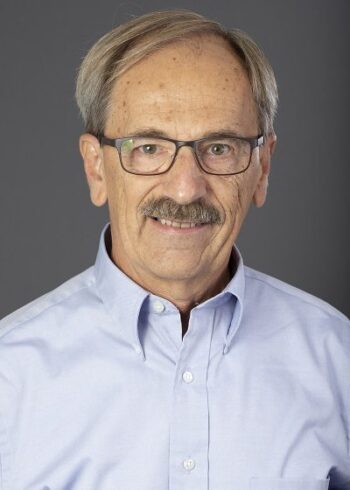From the Editor: When the Going Gets Tough, the Engineers Get To Work

I was having a difficult time narrowing down a topic for my column this issue; there seem to be so many things happening at the same time. So rather than struggle with one topic (and adding words to fill the page), I decided to mention of few of the “many things” that have crossed my mind, perhaps sparking some discussions.
Climate and Student Concerns
Looking through the last few issues of Informed Infrastructure, there were at least a dozen articles or columns that mentioned climate change or global warming (one issue focused wholly on “Sustainable Engineering”). Obviously, this is a topic of great concern for our engineering community and many other people throughout the world. Yet our country isn’t willing to put forth the effort and funding required for action to preserve our planet. I’m not sure why there’s still a question about this reality.
The fall season has been very long and extraordinary in its display of color, and I was able to take time to observe nature in this beautiful time of year. Our construction season here in the Midwest continues into November, because it’s still “unseasonably warm,” although I think the timing of the seasons is changing a bit (i.e., a changing climate).
My students (seniors in college) are very concerned about the economy. Since the country—and the world—has been through this type of cycle in my lifetime, I provided a positive slant that it will be temporary and most likely they will survive just fine.
I also tell them that as they begin their career, it will be a good time to start investing into their retirement plan, because they are “buying low” in the market. But the students say college debt and high housing costs may not allow them to do so. Many of them should be able to take advantage of the debt-relief program, and at least they have a great possibility of landing a job they want. But this is a major concern of our profession’s future leaders.
In my local area, it appears COVID-19 is no longer being taken as seriously as before, even as more than 300 people die from it every day in the United States. I think much of the indifference is because many of us have been vaccinated and trust the protection it provides, but I live in an area that includes many people who are not vaccinated, so I still have to be cautious.
Because of the pandemic, the work environment changed significantly. I read that after peaking at a little more than 40 percent of employees working remotely in 2020, that number has dropped to about 25 percent and seems to have stabilized there. This is another concern of my students: there’s a contingent that wants to be remote all the time, and others want to be in a more-traditional environment. It made for some interesting conversations at the recent career fair on campus.
Will We Learn from History?
I’m currently halfway through reading a book by Margo T. Oge, the former director of the Office of Transportation and Air Quality at the Environmental Protection Agency (EPA). The book is titled Driving the Future, Combating Climate Change with Cleaner, Smarter Cars, and she describes a future where cars will be much less harmful to the environment.
But Ms. Oge also provides a history of the conflicts between those who recognized the issues of climate change and those who opposed the steps to combat the brewing crisis. The EPA was created by President Richard Nixon in December 1970. The book details the difficulties faced by the EPA as it attempted to do the work it was chartered to perform. For the most part, it was the automobile and fuel industries as well as the Republican presidents and congresses that caused the roadblocks to include greenhouse gas emissions as a measure of pollution control, although scientists knew this was a cause of global warming back in the 1970s. I recommend the book as I continue reading and anticipate her ideas about the future of vehicles.
When I submitted this column, it was the day before the mid-term elections in the United States, and I don’t have any information about the results. Since there are so many uncertainties about the ramifications the election results will have, I’m somewhat uncomfortable about the future of any legislation or policies that will benefit the people of America … and the world. But as professional engineers, we must continue to develop standards and procedures that lead to policies and laws that have a positive effect on our infrastructure and environment. 

About Robert Schickel
Robert Schickel was born in New Jersey and received his BS in Civil Engineering degree in 1971 from Valparaiso University in Indiana. His career started as a bridge design engineer and expanded to include design of various transportation facilities, including highways, bridges, rail lines and stations, and airport runways. Mr. Schickel managed engineering offices ranging from 20 to 140 people. He also served as a consultant to a large utility company. Mr. Schickel currently resides in Indiana and serves as Adjunct Professor for the College of Engineering at Valparaiso University. He enjoys his retired life at his lake house, playing golf, listening to music and spending time with his family, especially his grandchildren.


